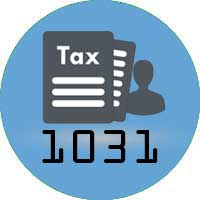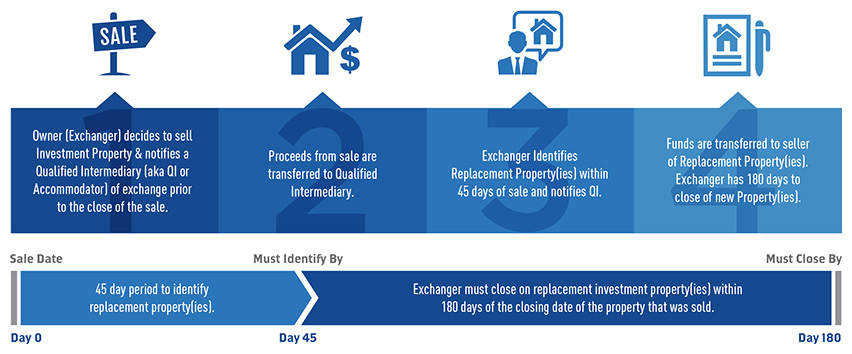Elements of a 1031 Exchange
 The 1031 Exchange is a provision of the Internal Revenue Code that is beneficial to those who need to sell a property and also in the market for a real estate purshase. 1031 permits parties to sell one property and buy another without incurring a federal income tax liability. This allowance is based on a few requirements including time and the kinds of properties involved. The property to be disposed of is called the Relinquished Property, the newly acquired property is called the Replacement Property, and the person disposing of and acquiring another property is called the Exchangor.
The 1031 Exchange is a provision of the Internal Revenue Code that is beneficial to those who need to sell a property and also in the market for a real estate purshase. 1031 permits parties to sell one property and buy another without incurring a federal income tax liability. This allowance is based on a few requirements including time and the kinds of properties involved. The property to be disposed of is called the Relinquished Property, the newly acquired property is called the Replacement Property, and the person disposing of and acquiring another property is called the Exchangor.
There are two time requirements that must be met in order to participate in a 1031 exchange.
- The Exchangor has to identify the choices for the Replacement Property within 45 days of the closing of the Relinquished Property. An Exchangor may identify up to three properties to be used for the Replacement Property, however allowances for more identifications are granted if the value of the identified properties are less than two times the value of the Relinquished Property. Additionally, more property replacement identifications are allowed if the Exchangor acquires 95% of the total properties identified.
- Within 180 days from the closing of the Relinquished Property the Exchangor must purchase the Replacement Property in order to qualify.

The kind of property being bought and sold also has an effect on qualification for a tax-deferred exchange. The properties must be of “like-kind,” however; land, office buildings, apartments, rental homes and condominiums are all real estate and, thus, adhere to the qualification. In addition, both the Replacement and the Relinquished Properties must be used for investment or use in trade or business. To clarify further, any rental property is property used in a trade or business and any land is investment property. Real estate must be traded for real estate and personal property must be traded for personal property. Conversely, trade or business property may be used in an exchange with investment property.
